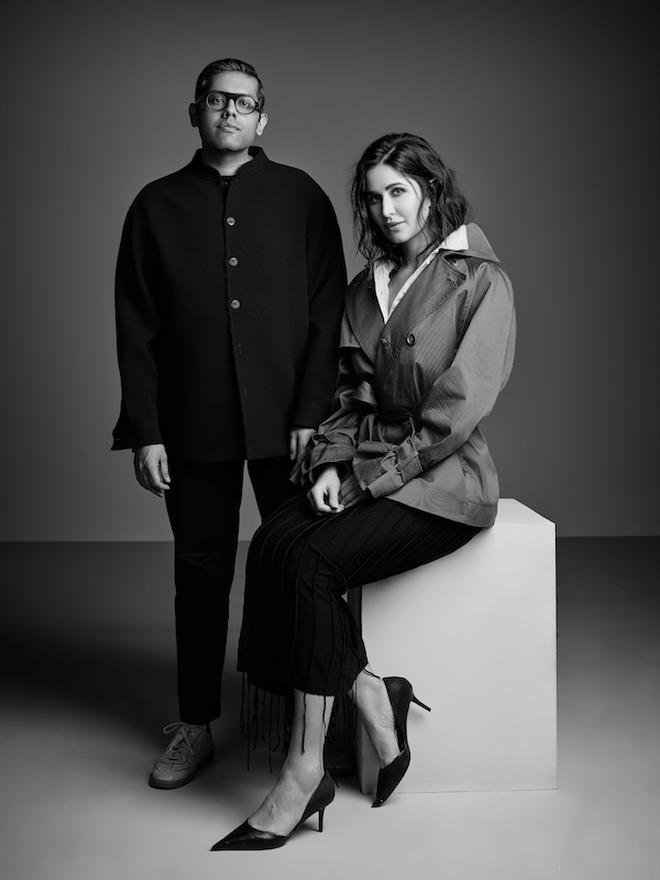For every tie, knot and technique used in its bags, Behno has a story. The international handbag label headquartered in New York — with manufacturing units across India — had its homecoming recently, as Shivam Punjya, its founder, launched retail operations in India.
Lodged within Behno’s signature knots are tales of how artisanal communities come together to champion a better world ahead of them while learning and standing up for each other. The “union” of artisanal communities is in line with Behno, which denotes sisterhood. “It comes from the word behen (sister) that women working in factories call each other,” says Shivam, who is shuttling between Mumbai and New York “leading a nomadic life.” But his heart, just like his creations, is rooted in India.

In a kaleidoscope of colours — from classic white, black and tan to metallics and candy crush tones — Behno’s bags now have a seal of approval from Katrina Kaif, who, in March, became an investor and also the brand ambassador of the company. ”Katrina is a global icon. She’s interested in mindful consumption. She has decided to be more intimately involved and also has references for shoots,” says Shivam.
A former healthcare professional, Shivam was in India in 2013 to research public policies in the country for a project . He was working extensively with women in Jaipur and Hyderabad. Most of them were workers from the textile industry, he recalls. Shortly after the Rana Plaza building collapsed in Bangladesh, and caused the death of 1000-plus garment workers, Shivam was disturbed and could not stop talking about it. His family advised him to either make peace with what happened or jump in and do something. He chose the latter.

Eventually Behno took shape, starting out as a ready-to-wear garment brand. Shivam also came up with what he calls The Behno Standard that lists six categories: women’s rights, healthcare, garment worker social mobility, family planning, eco-consciousness, and worker satisfaction and benefits. He works with factories that embody these practices.
“We did about five ready-to-wear collections. We started designing handbags to go with the garments in our look books. We noticed clients were gravitating towards the bags. That was the reason for us to pivot, he says. “The Indian market needs to access a product at an accessible price point. Behno’s bags here start at ₹7,000. It took some time , and now we are here,” he says, adding that some bags are being specifically designed for the Indian market. “We want to make sure all functionalities are covered.”

As a conscious brand, Behno has distanced itself from seasons. While they drop new products, update colours and add silhouettes, it does not proliferate like a rash every season. Here, there is no deadline on colour or style. “For me, a handbag is timeless. It is supposed to be worn as much as you can.”
The quiet luxury wave works well for Shivam as he does not believe in loud logos. His designs are rooted in minimalism. ”Our bags have debossed logos on them, keeping our elements more minimal. There are hidden elements to the bag that only the user will know: like the wave detail on our locks, which is visible when the flap is opened; or the inverse of our “b” logo placed behind the flaps of our Ina series...” he explains, adding, “These subtle elements will stand the test of time. If a bag is clean and functional, you can wear it with anything, anytime,” he adds.
The products are entirely made in India, including the leather, which is also sourced from here. “We used to use imported leather. We are wrapping up our sourcing from Venice. We work with three different tanneries in Chennai, each specialising in different types of leather,” explains Shivam, adding that the bags are manufactured in factories in Kolkata and Nashik. While there is a stigma attached to the leather industry, he is happy to see more women joining one of the leather factories he works with in Calcutta. “Onboarding a factory is a long process as we are particular about quality. Every rupee is invested towards craftsmanship. There is training so they get everything right, including little details like how we do a stitch line or edge painting. Luxury, he believes, is not defined by price point but craftsmanship.
He is quick to point that all the leather being used is a by-product of the food industry. A vegetarian who wears a lot of leather, Shivam says, “The cattle industry globally has grown 20 percent year on year. This means there’s going to be a lot of byproduct from this industry. If there’s waste it is our responsibility to use the waste mindfully rather than sending them to landfills.”







